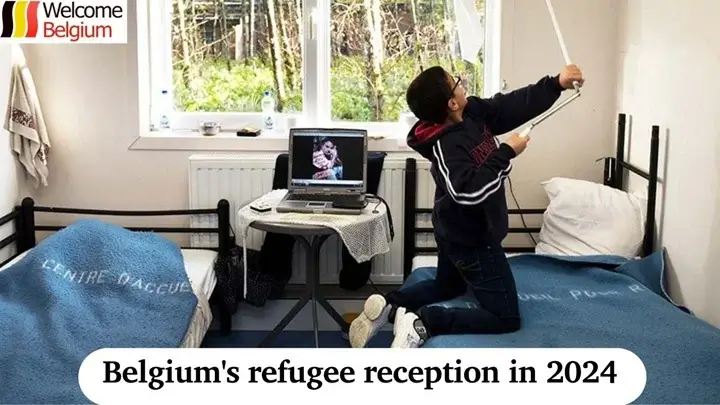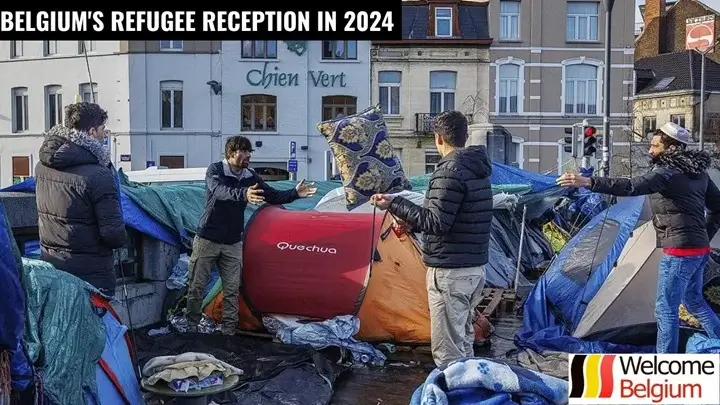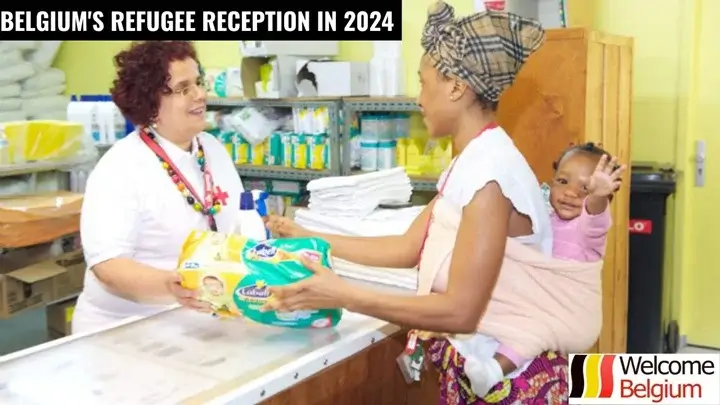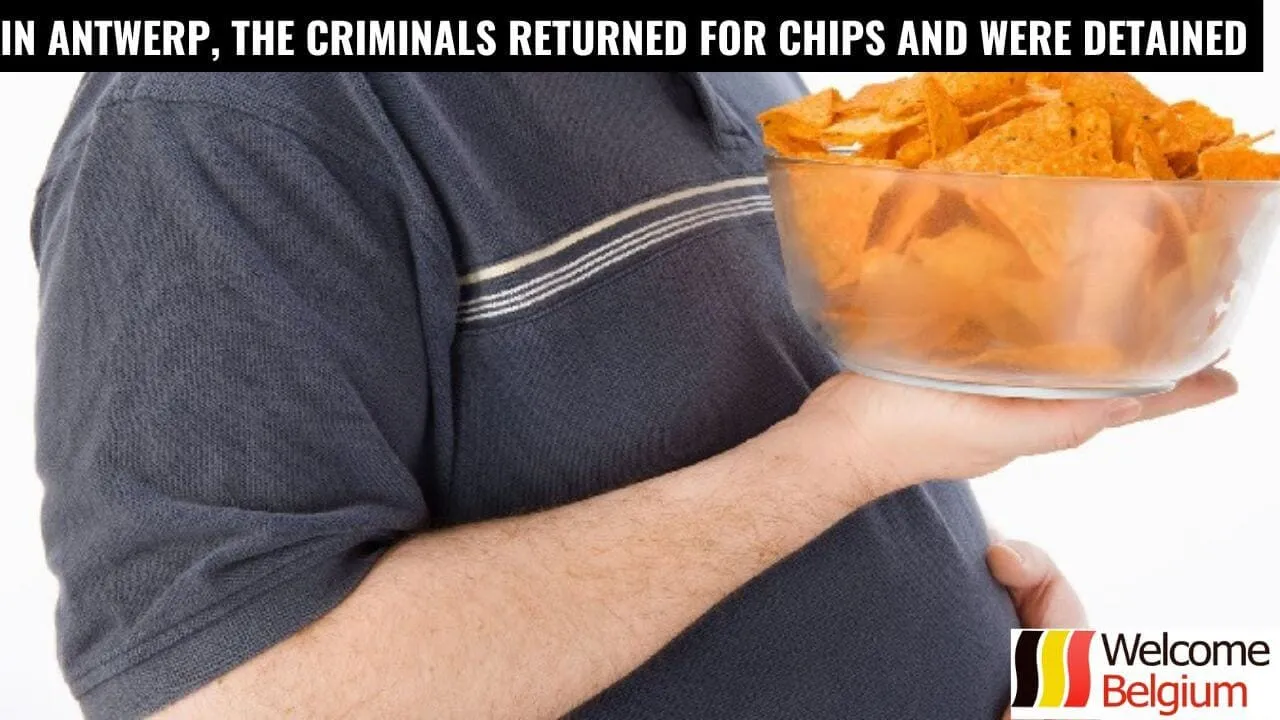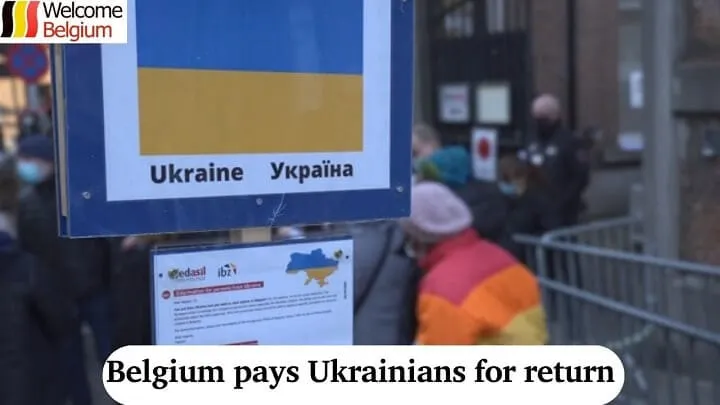Belgium’s reception network has reached a historic capacity of 36,077 places, surpassing the figures from the 2015-2016 crisis. However, despite this progress, the problem of a shortage of places for applicants for international protection remains acute, especially for single men. The situation requires urgent solutions and long-term investments to meet the growing needs and create a sustainable system. This article examines the current state of the network, the main challenges and possible ways to overcome them.
Reception network structure
The reception system for applicants for international protection in Belgium is organised to provide temporary housing and basic living conditions. The network consists of collective centres, individual housing and temporary hotel accommodation. Each type of accommodation is adapted to different categories of people in need, including families, single men and women. The network comprises over a hundred facilities, which allows the workload to be distributed between regions and partner organisations.
Main elements of the receiving network:
- Collective centres. Total number: 107 facilities. Managed by Fedasil and other partner organisations. Provide basic facilities including food, medical care and social support. Designed to accommodate families and single applicants.
- Individual housing. Organized by Community Social Welfare Centers (CPAS/OCMW) and associations. Includes rental housing and spaces allocated to those in need. Creates comfortable conditions for the adaptation of families and single women.
- Temporary hotel accommodation. Located in five hotels in Brussels. Intended for families until places become available in the main centres. Can accommodate around 500 people on a temporary basis.
In addition to the main network, applicants for protection can also be temporarily accommodated in the homeless assistance sector. There are 2,000 additional places available through federal funding, which are distributed through charities and municipal organizations. In addition, some families are accommodated with volunteers and charities that are willing to provide temporary housing. These alternative solutions play an important role in reducing the burden on the main intake network.
Main problems
Belgium continues to face challenges in its system for receiving applicants for international protection, despite record capacity. The main problems are related to the lack of places, the temporary nature of decisions and the significant burden on regional resources. The situation is particularly acute for single men, leaving thousands of people waiting. These difficulties require thoughtful and prompt solutions to stabilize the system.
Main problems: detailed list:
- Lack of places for single men. Around 2,650 single men remain on the waiting list and are unable to access mainstream reception services. Expanding permanent places and opening dedicated centres for single applicants.
- The temporary nature of newly created places. Many of the new places of accommodation, such as hotels and temporary structures, are not intended for long-term use. Investment in the construction of new centers and the development of long-term accommodation programs.
- Community-based social services (CPAS/OCMW) centers are under pressure. Local authorities lack the resources to manage individual housing and assist applicants. Increase federal funding and provide additional staff to local centers.
- Lack of integration programs. Many applicants do not have access to language courses and vocational training, which complicates their adaptation. Expand educational programs and simplify employment procedures.
To address the difficulties in the reception system, Belgium is taking a number of measures. Work is underway to create new places in permanent centres and improve the conditions of accommodation. In addition, federal funding is being directed to support temporary solutions and the expansion of integration programmes. These steps help reduce the pressure on the reception network and improve conditions for applicants.
Solving the problems of receiving refugees in the regions of Belgium
Different regions of Belgium have specific problems with the reception of refugees, which require individual solutions. In Flanders, there is a high concentration of temporary solutions, such as hotels, due to the lack of permanent places. In Brussels, the situation is complicated by the high population density and resource constraints of local authorities, which leads to queues and delays in accommodation. In Wallonia, despite a relatively lower caseload, there is also a shortage of places and a lack of infrastructure for long-term accommodation of refugees. These differences create additional difficulties in coordinating and distributing applicants across the country.
To address the challenges associated with receiving refugees, Belgium is actively implementing improvements at all levels. The Federation is working to expand the infrastructure, including building new reception centres and improving the conditions in existing ones. Work is also underway to increase the sustainability of the system, reduce the reliance on temporary accommodation and improve the level of integration for refugees. In response to the current challenges, it is important to maintain cooperation between federal and regional authorities to effectively address the situation.

